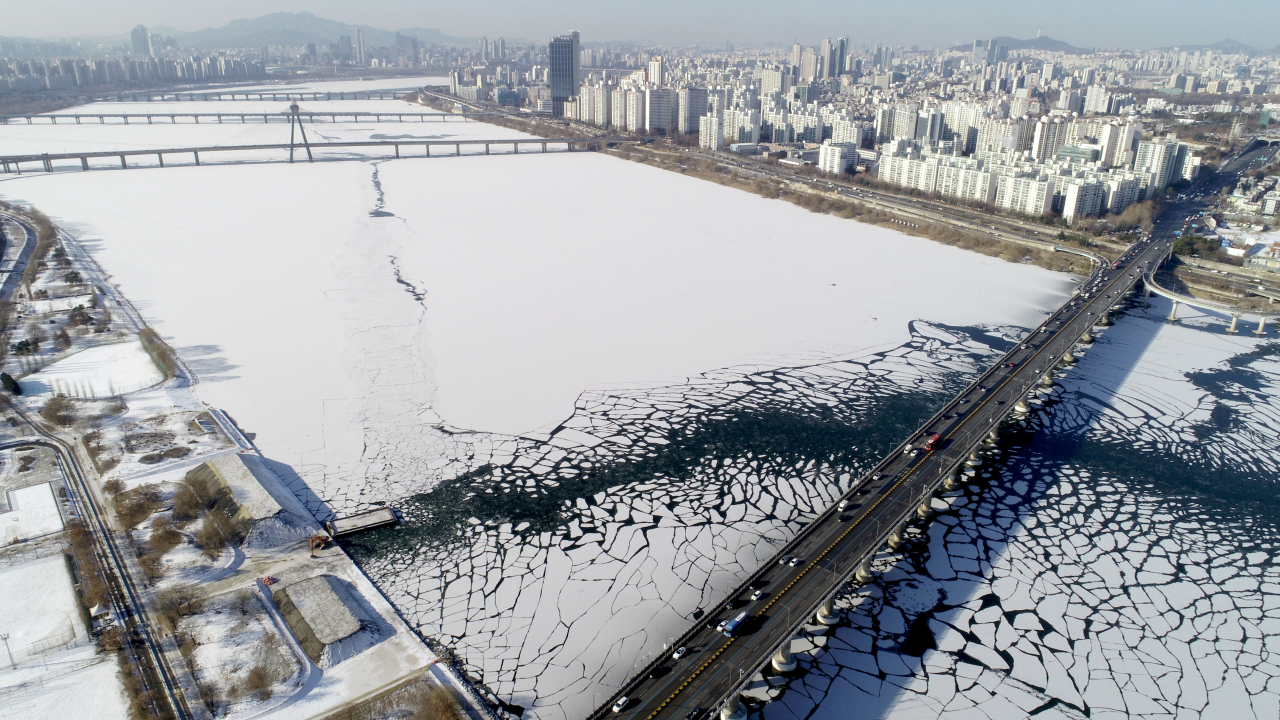
Unusually cold weather in South Korea is driving a surge in winter illnesses, such as hypothermia, frostbite and chilblains, according to health authorities.
The latest data from the Korea Disease Control and Prevention Agency found that the number of such patients reached 345 as of Friday since December, a 65.9 percent rise from the same period a year ago. The temperature in Seoul last week dropped below minus 17 degrees Celsius, a threshold that the country’s weather agency says has been breached for only 173 days since 1904.
Gyeonggi Province led the patient tally with 69 residents there suffering from winter illnesses, followed by Seoul at 47, Gangwon Province at 46, South Chungcheong and North Chungcheong provinces at 30 and 23, respectively.
Health authorities advised people to avoid outdoor activities as much as possible when cold wave advisories or warnings are in place.
Advisories are issued when morning lows are expected to stay at minus 12 C or below for two days and more, or when they are likely to drop by at least 10 degrees from the previous day and remain 3 degrees lower than the annual average. Warnings come into force when the temperature hits minus 15 C or drops more than 15 degrees.
Temperatures are expected to turn mild, officials say, but populations vulnerable to extreme weather like the elderly and homeless are still at a higher risk of winter illnesses as they bear the brunt of a global surge in gas and heating fuel prices.
The presidential office said last week it would double energy vouchers and discounts on gas prices for poorer households this winter, a one-time rule change affecting roughly 2.8 million of the country’s 21.7 million families.
The office blamed the previous government for having missed opportunities to lift gas prices in stages, a policy misstep it says led to the steep increase. Officials who had worked for the Moon Jae-in government dispute that, saying the Yoon Suk Yeol administration, which took power in May last year, had also pushed back on the timeline for its own advantage.








![[Kim Seong-kon] Democracy and the future of South Korea](http://res.heraldm.com/phpwas/restmb_idxmake.php?idx=644&simg=/content/image/2024/04/16/20240416050802_0.jpg&u=)








![[KH Explains] Hyundai's full hybrid edge to pay off amid slow transition to pure EVs](http://res.heraldm.com/phpwas/restmb_idxmake.php?idx=652&simg=/content/image/2024/04/18/20240418050645_0.jpg&u=20240418181020)

![[Today’s K-pop] Zico drops snippet of collaboration with Jennie](http://res.heraldm.com/phpwas/restmb_idxmake.php?idx=642&simg=/content/image/2024/04/18/20240418050702_0.jpg&u=)